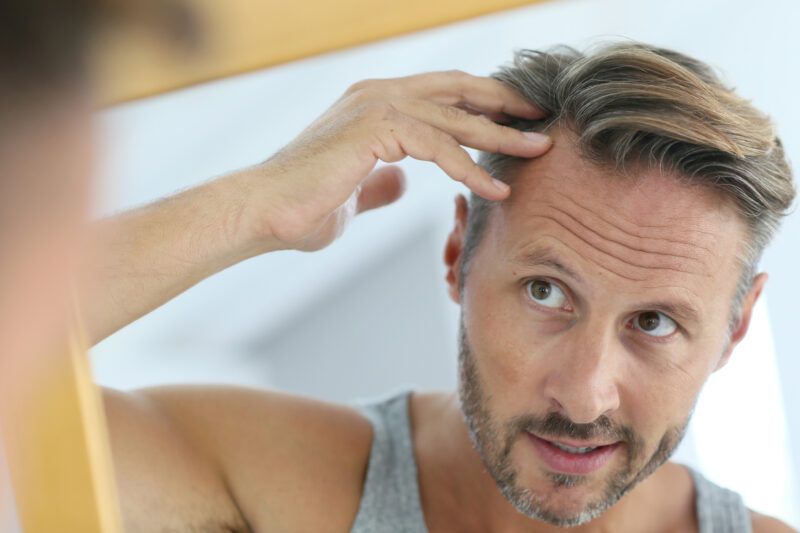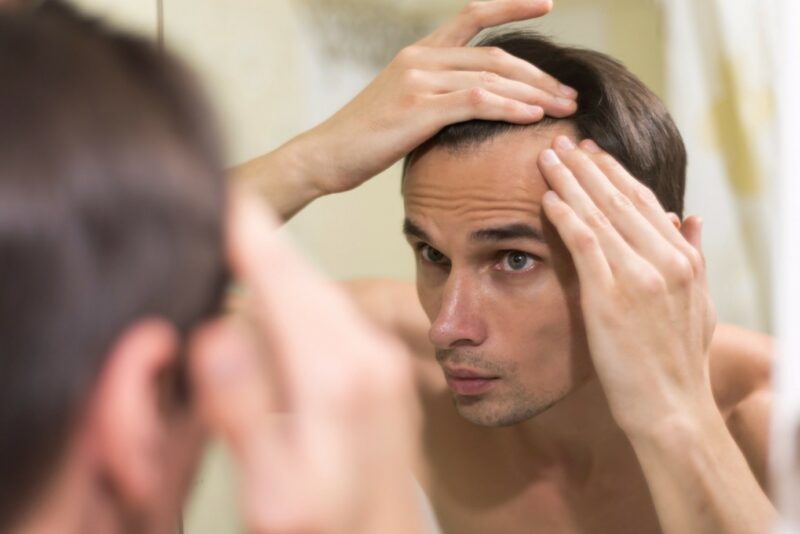
Understanding Hair Regrowth: Myths and Misconceptions Debunked
The internet is brimming with information about hair loss and regrowth, but much of it lacks scientific verification and factual basis. Overnight solutions claiming to promote natural hair regrowth often fall short in addressing underlying hair loss issues, emphasizing the importance of seeking professional guidance.
The market is saturated with various hair regrowth products and treatments, yet not all deliver reliable results as promised. Moreover, the prevalence of myths and misconceptions surrounding these regrowth methods further complicates the search for a genuine solution to hair loss.
To grasp the reality behind hair regrowth treatments, it’s essential to gain some understanding of the factors contributing to hair loss.
Understanding the Basics of Hair Loss
Hair loss, also referred to as alopecia, is a condition characterized by an excessive loss of hair beyond the usual levels. The onset of hair loss can be either abrupt or gradual, depending on the severity of the condition. Those affected may experience partial or complete hair loss.
Some typical types of hair loss include:
Certainly, here are some common types of hair loss:
– Androgenetic Alopecia: This prevalent condition is primarily triggered by genetic factors.
– Alopecia Areata: It affects individuals across all age groups and is often linked to an autoimmune disorder.
– Telogen Effluvium: This involves the sudden shedding of hair, typically triggered by illness, medication, physical or emotional stress, and hormonal changes.
– Traction Alopecia: It occurs when the hair is consistently subjected to prolonged and excessive tension, ultimately leading to damage to the hair follicles over time.
Each hair loss condition necessitates a tailored approach to hair regrowth treatment. The specifics of the regrowth program are contingent upon the underlying cause of hair loss, as well as the individual’s overall health and lifestyle.
Common causes of hair loss encompass genetic factors, aging, various medical conditions, nutritional deficiencies, frequent styling and chemical treatments, and heightened stress levels.
Specific treatment options for hair loss are available for both men and women, dependent on the distinctive pattern of the condition. Addressing the fundamental cause of hair loss constitutes the initial step in managing and potentially reversing the condition, underscoring the importance of seeking professional guidance.
5 Hair Regrowth Myths and Misconceptions
1. Most hair loss treatments are only effective for men’s hair regrowth
This misconception arises from the prevalent focus on and discussion of male baldness. It’s crucial to recognize that hair loss is not a concern exclusive to men. Women, too, encounter hair thinning and loss, albeit in various patterns. Hair regrowth procedures are available for both men and women, with certain treatments proving effective for both genders.
2. Every hair regrowth treatment has harmful side effects
Numerous individuals hesitate to pursue hair regrowth treatments due to concerns about potential side effects. It is crucial to understand that not all treatments entail the same degree of risk or side effects. Seeking guidance from a professional before deciding on a hair loss treatment is advisable to gain insight into the possible risks and side effects.
3. Hair regrowth programs provide instant results
Whether it’s a men’s hair growth treatment or a women’s hair regrowth program, it’s essential to recognize that hair growth is a gradual process. Consistency and adherence to long-term treatments are typically necessary for significant results. The trajectory of the hair regrowth journey is also contingent upon the specific hair loss condition and the overall health of the individual.
4. Natural remedies are always effective and safe
A lot of individuals resort to natural remedies, such as essential oils and herbal treatments, for hair regrowth. Although natural remedies usually have low risk of side effects, not all of them are backed by scientific evidence. It is advisable to consult a hair expert before utilizing any natural remedies, as they might potentially interact with other medications and result in side effects.
5. Hair loss is inevitable with age
Certainly, hair thinning and loss often accompany the aging process, yet it is not an unavoidable occurrence for everyone. Factors such as genetics, lifestyle choices, and stress also exert significant influence over the extent of age-related hair loss. Through appropriate treatments and preventive measures, it is feasible to decelerate or even reverse the effects of hair loss associated with aging.
Now that we have given you clarity on hair regrowth misconceptions, let’s get to the FAQs.
Frequently Asked Questions
Certain over-the-counter products, such as Minoxidil, are proven to treat hair loss, yet their effectiveness hinges on various underlying factors such as the type of hair loss and whether or not the user is compliant in its usage. More often than not, a combination of treatments is the best way to regrow hair fast and effectively.
The timeline for observing results varies depending on the treatment and the individual. Some may notice results within a few months, while others may require a longer duration up to 6 months. This is due to the hair loss cycle (e.g. new thicker hairs will slowly push our the existing thin and weak hair shafts).
Nutritional deficiencies can contribute to hair loss. Consuming foods rich in biotin, Vitamin D, iron, and zinc can prevent hair loss due to vitamin deficiency.
Hair transplants serve as a validated method for addressing severe hair loss conditions. Additionally, other hair regrowth treatments, such as low-level laser therapy, scalp injections and medications, are also available options.
Indeed, stress serves as a contributing factor to hair loss, in particular, the condition known as Telogen Effluvium. Employing relaxation techniques to reduce stress can effectively manage stress-related hair loss.
Rather than applying arbitrary products and following ambiguous haircare routines, it is advisable to seek guidance from a professional. We trust that this blog has provided you with some clarity regarding hair regrowth and hair loss conditions.
For more information on the most effective hair loss treatments for both men and women in Australia, please reach out to the hair experts at Bioscor.
